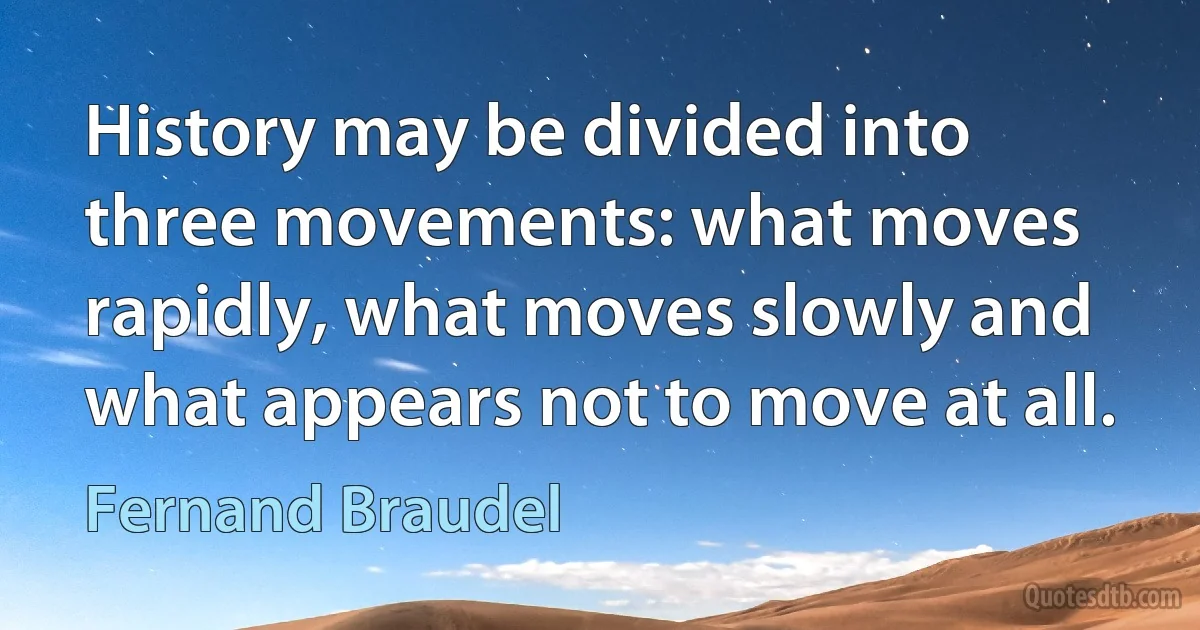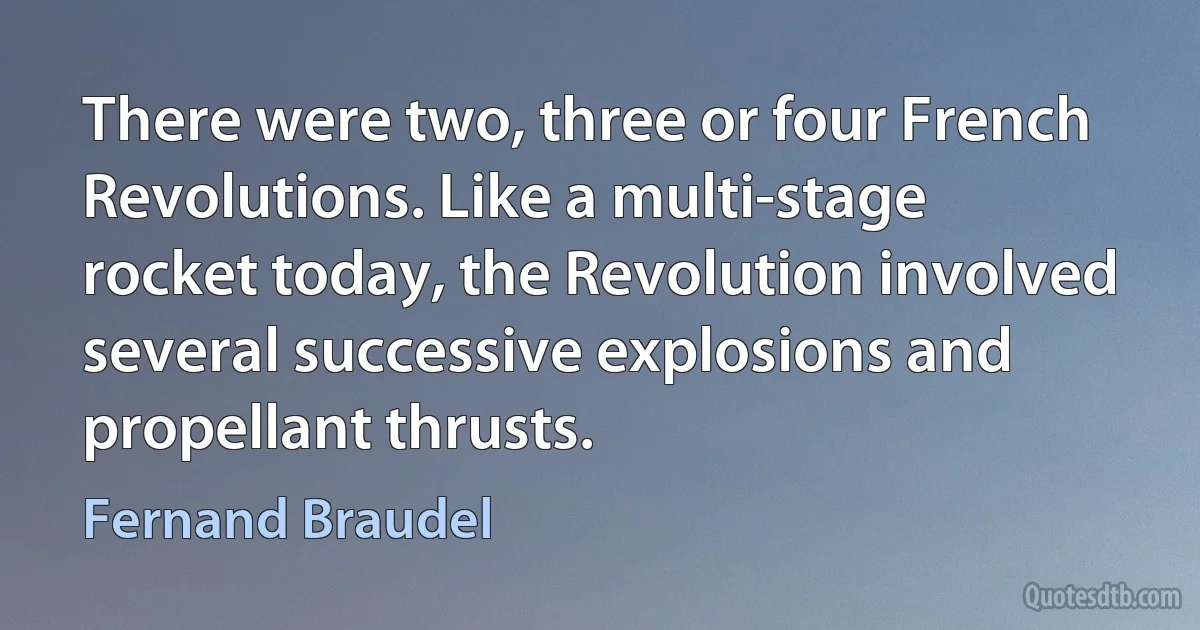Fernand Braudel quotes
Events are the ephemera of history; they pass across its stage like fireflies, hardly glimpsed before they settle back into darkness and as often as not into oblivion. Every event, however brief, has to be sure a contribution to make, lights up some dark corner or even some wide vista of history.

Fernand Braudel
India survived only by virtue of its patience, its superhuman power and its immense size. The levies it had to pay were so crushing that one catastrophic harvest was enough to unleash famines and epidemics capable of killing a million people at a time. Appalling poverty was the constant counterpart of the conquerors' opulence. (...) The Muslims (...) could not rule the country except by systematic terror. Cruelty was the norm burnings, summary executions, crucifixions or impalements, inventive tortures. Hindu temples were destroyed to make way for mosques. On occasion there were forced conversions. If ever there were an uprising, it was instantly and savagely repressed: houses were burned, the countryside was laid waste, men were slaughtered and women were taken as slaves.

Fernand Braudel


